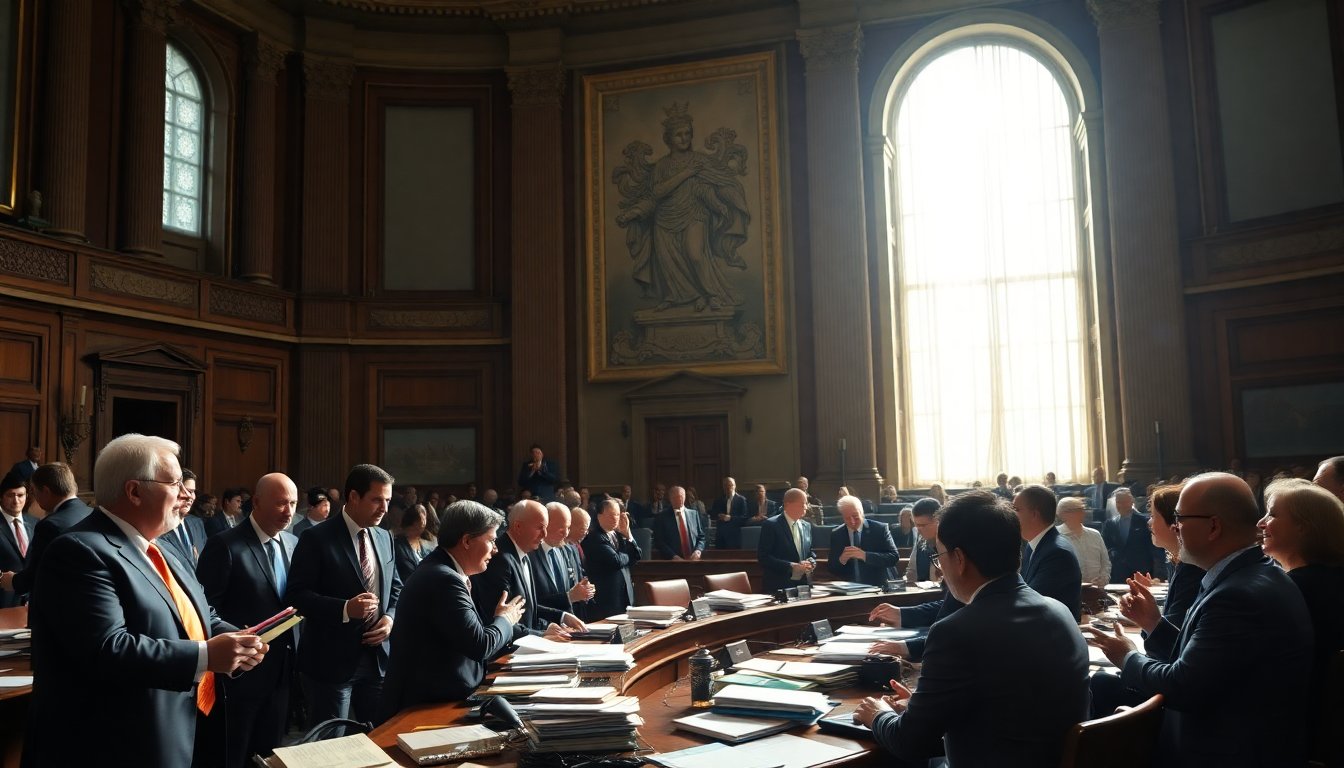Table of Contents
Argentina’s political landscape shifts with Javier Milei’s midterm election victory
In a landmark political event, Argentine President Javier Milei has emerged victorious in the recent midterm elections, solidifying his position within the nation’s Congress. This victory is not merely a personal achievement for Milei; it represents a potential transformation for Argentina’s economic landscape as he champions a shift towards free-market reforms. The results indicate that his party, La Libertad Avanza (LLA), garnered approximately 40.84% of the vote, outpacing the traditional ruling coalition.
Election results and political implications
The recent midterm elections recorded a significant turnout, with Milei’s party achieving a decisive lead over the Peronist coalition, which garnered only 24.5% of the votes. This result is particularly significant considering the recent challenges faced by Milei’s administration, including economic instability and public discontent surrounding certain policies. The outcome indicates a strong mandate for Milei’s agenda focused on downsizing government and deregulating the economy.
Reactions to the election
At his campaign headquarters in Buenos Aires, Javier Milei celebrated his victory and expressed gratitude to his supporters, stating, “The Argentine people have chosen progress over decadence.” This remark encapsulates a growing sentiment among voters frustrated with the longstanding dominance of Peronism, a political movement often criticized for economic mismanagement and corruption. As Milei took the stage, he fervently emphasized the themes of his campaign, focusing on restoring national pride and enhancing economic stability.
Milei’s economic agenda
Since assuming office, Javier Milei has enacted significant measures to rejuvenate the Argentine economy. These actions include reducing public sector employment and freezing government spending on vital services like health care and education. Critics contend that these policies have worsened poverty levels, while proponents highlight a notable decrease in inflation, which has reportedly dropped by two-thirds. This contrast exemplifies the intricate realities of economic reform in a nation historically challenged by fiscal instability.
International support and future challenges
The recent electoral victory occurs against a backdrop of international scrutiny and support. U.S. President Donald Trump congratulated Javier Milei on his win, emphasizing the strategic alliance between the two leaders. Trump’s administration had previously signaled a willingness to provide Argentina with a significant financial aid package, contingent upon Milei’s electoral success. This support highlights Argentina’s geopolitical importance within the broader context of Latin American politics.
However, Javier Milei’s path forward is fraught with challenges. The election results, while positive, do not eliminate the need for ongoing reform and public support. Many voters remain skeptical of Milei’s ability to fulfill his promises, especially in light of recent corruption allegations involving his administration. As he advances with his reform agenda, maintaining public trust and addressing these concerns will be critical for his long-term success.
Is this a new era for Argentina?
Milei’s electoral success marks a pivotal moment for Argentina’s political and economic future. As he embarks on this new chapter, the nation watches closely to see if his vision for a free-market economy can indeed bring about growth and stability. With significant political power now in his hands, Milei has the opportunity to redefine Argentina’s economic policies and restore its reputation on the global stage.


